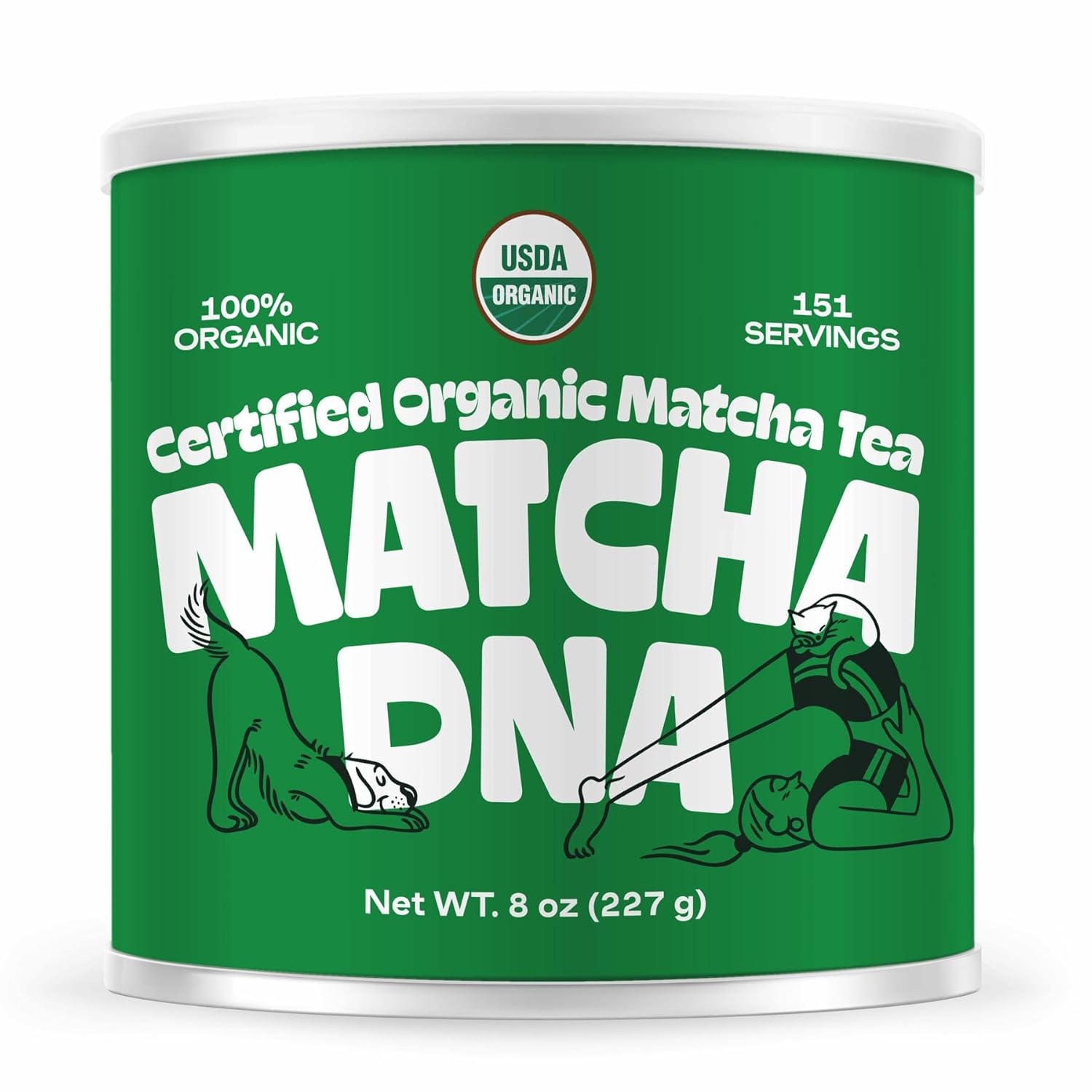A few years back, I used to rely on my trusty cup of coffee to kickstart my day. But as time went on, and I started to take my health a bit more seriously, I realized that so-adored coffee was the one responsible for my jittery spikes. And that I couldn’t go more than a few hours without wanting to drink another one. That dependency didn’t sound any good, right? It was then, in my healthy girl era, that I came across matcha green tea, which came into my life as a real game-changer.
So let me tell you why making the switch and changing your usual cup of coffee for a yummy matcha latte might just be the energy glow up you need.
What is matcha?
If you’ve been living under a rock and still didn’t know (sorry not sorry), matcha is a type of green tea that’s made from specially grown and processed leaves that are finely ground into a powder. Different to your other teas, you actually don’t steep the leaves, but rather mix the powder directly with water, consuming the entire leaf. Which means hella more nutrients for you (>ᴗ•).
Here’s why it’s superior to coffee.
Antioxidant powerhouse
You’ve probably heard the word “antioxidants” thrown around like the secret ingredient to everything healthy, but do you know what they actually do? Think of them as your skin and body’s personal bodyguards, fighting off the stress and damage caused by everyday life (pollution, junk food, scrolling on your phone at 2 AM… yup, all of that).
Now, coffee has some antioxidants too, but matcha? It has way more per serving. It’s packed with catechins, especially one called EGCG (epigallocatechin gallate), which is a bit scary and scientific, ngl, but what it basically does is it helps your skin stay clear and fresh, and reduces inflammation.
So, while coffee might give you a quick fix, matcha is playing the long game. Need more convincing?
Quick spike vs. sustained calm
The way the caffeine affects your body actually differs between the two drinks:
-
Coffee has about 80-100 mg caffeine per cup.
-
Matcha DNA’s matcha powder has around 22-44 mg caffeine per cup.
And like I mentioned in the beginning, my usual cup of coffee used to give me a rapid energy spike, but was followed by a midday crash, leaving me jittery until I had another one.
Matcha, on the other hand, offers a smoother, longer-lasting energy boost. Why? Because it’s paired with L-theanine, an amino acid that promotes relaxation without drowsiness.
Mood matters
No news here: high caffeine intake from coffee can sometimes lead to increased anxiety and jitteriness.
In contrast, matcha's combination of caffeine and L-theanine smooths out energy levels while promoting a sense of calm focus. L-theanine for the win, right? This makes matcha an excellent choice if you’re looking for less stress but more alertness.
Addictive tendencies
Regular coffee drinkers may develop a dependency, experiencing withdrawal symptoms like headaches or being easily irritable if they don’t take their daily cuppa. Kinda like a drug. I mean?! This is a clear win for matcha. Since it has less caffeine and balanced energy release, it means it has a lower risk of addiction.
And hear me out: even though I’m totally obsessed with matcha (can’t hide it, sorry), this is a choice that I make daily rather than a compulsive need. Embracing my matcha era has become an incredible ritual, not a dependency. Also, it’s green, aesthetic, tasty, versatile… What’s there not to like?
We believe in: matcha supremacy!!
Do you really need more reasons to make the switch? Matcha is clearly the winner.
-
Balanced energy: no more jitters and crashes.
-
Antioxidant-rich: good for your health!!
-
Versatile queen: from lattes to skincare, matcha's got you covered.
So if you want to try it out but don’t know where to start, go try Matcha DNA’s organic matcha powder and discover the infinite ways that you can incorporate it into your life. And if you are in desperate need of inspiration for recipes or beauty hacks, you should definitely check out our other blog posts. What are you waiting foooor??






